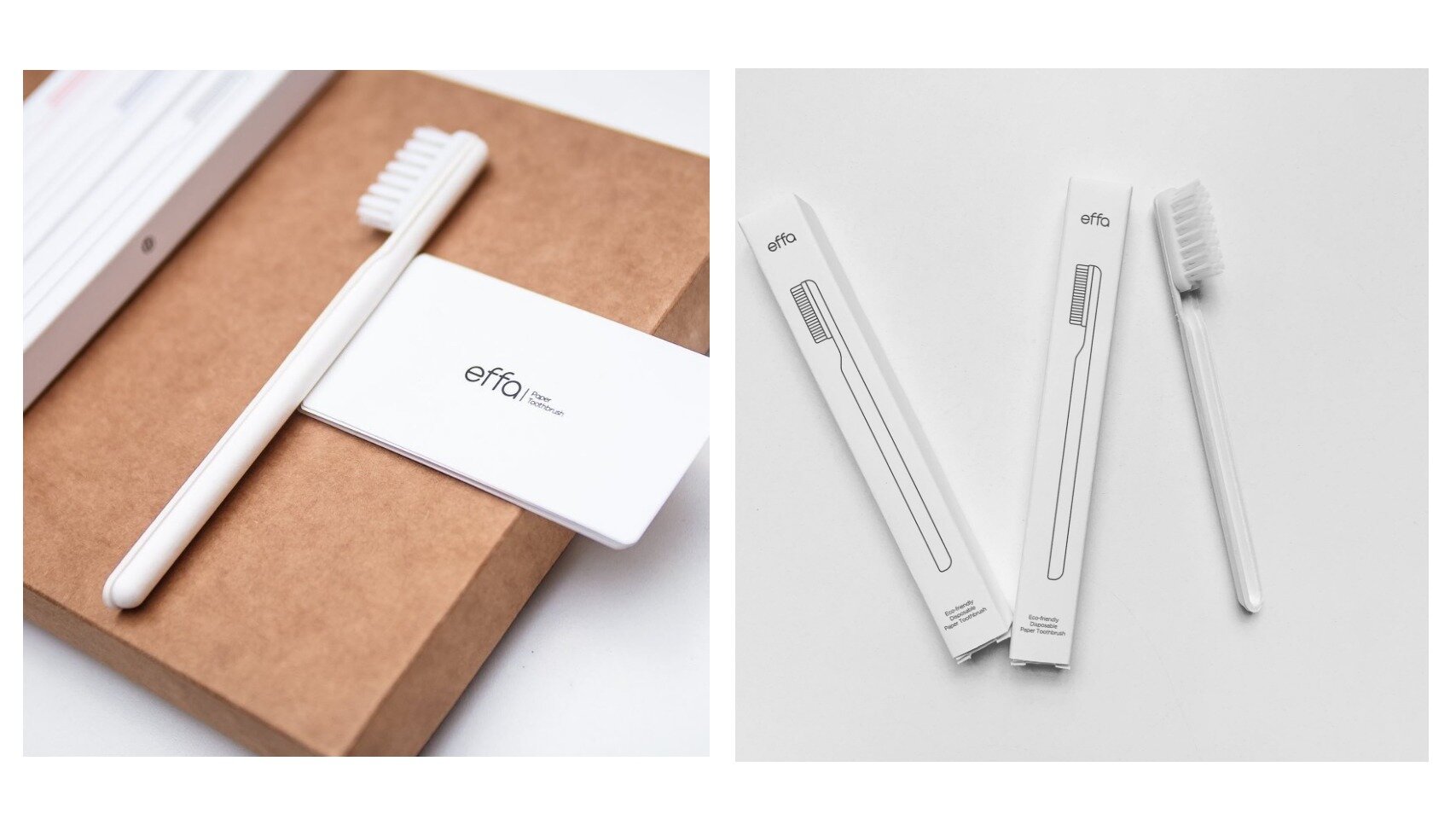Ukrainian startup Effa, which creates nature-friendly toothbrushes, has attracted $500,000 of investment and is now valued at $3.5 million, its cofounder Dasha Kichuk said on April 12.
The money came from a Ukrainian private investor who doesn’t reveal his name to avoid requests for financing from other startups, Kichuk told the Kyiv Post.
With the new investment, the company wants to expand the staff and develop recyclable personal care products for hospitals.
Effa mostly sells eco-friendly toothbrushes to hotels and airlines. Among its clients are the South Korean luxury hotel chain Lotte, the U.S. hotel chain Radisson and vacation rental marketplace Airbnb. The company even sold 60,000 of its toothbrushes to Netflix, a popular streaming service based in California.
In Ukraine, the company works with the local vanguard hotel Bursa.
These businesses use Effa to cut down their daily plastic usage and reduce the carbon footprint.
Effa’s toothbrush can be used for 30 days. Its paper body is made from fast-growing sugar cane, and its head is made of eco-friendly cornstarch and nylon.
The traditional toothbrushes made of plastic are not recyclable, according to the Ukrainian Waste Management Center. After people throw them away, toothbrushes pollute the environment, most often in the ocean.

Ukrainian startup Effa manufactures a recyclable toothbrush made of sugar cane, cornstarch and nylon. (Effa)
Globally, the hotel industry alone throws over six tones of disposable toothbrushes, which is equal to the size of a whale, Effa said.
To change that, Effa has started the mass production of its “green” toothbrushes. Now the company manufactures them in China but Kichuk told the Kyiv Post that the company plans to start the production in Ukraine too.
To attract big-name clients and investors, Effa participated in the New York-based Starta program for startups and showcased its product at the largest tech expo on the planet, CES (Consumer Electronics Show) 2020, alongside such giants as Amazon, Microsoft, Sony and Facebook.
Unlike in the U.S, the Ukrainian market for eco-friendly products is still too small because most of the population is first and foremost focused on being able to afford the basic things, according to Kichuk.
“Ukrainians think more about how to buy food or pay rent rather than how to help the environment,” she said.
